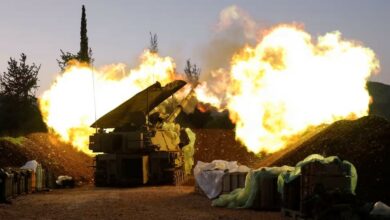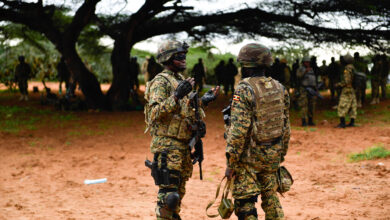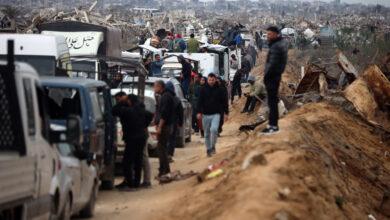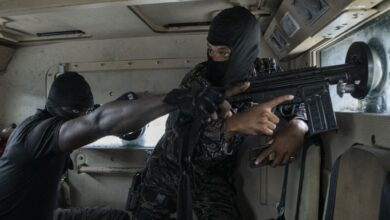Four people were killed in clashes between United Nations peacekeepers and an armed group in the southwest of the Central African Republic, an area so far spared much of the violence that has ravaged the country since 2013, media reported.
“Four people were killed. One of them was apparently the head of Siriri,” AFP reported a source as saying on Monday, April 23.
According to AFP, the source was referring to a new armed group set up at the end of last year.
The U.N. mission in the Central African Republic, Minusca, said in a statement published in French that it had “intervened on Sunday morning in the prefecture of Mambere Kadei … to stop the movement of armed elements of the Siriri group to the town of Gamboula, where they intended to occupy the local gendarmerie.”
Minusca said the intervention was based on intelligence from the Berberati gendarmerie on the group’s movements.
“Upon arrival at the village of Nassole, where members of the Siriri group had erected a barricade, the peacekeepers were the target of enemy fire and fired back, causing casualties among the attackers,” the Minusca statement said, adding that weapons and a dozen motorcycles were later recovered.
“Minusca has strengthened its security apparatus in this area while continuing discussions with local authorities on a strategy to end the threat of the Siriri group and address the issue of cattle theft,” it said.
According to an August 2017 report by the Washington D.C.-based Enough Project, MPC Siriri is a splinter group of the Mouvement Patriotique Centrafricain group that formed in June 2017 and is led by two Chadians. The report says that the group is mostly Arab Muslims, and has roots in the Seleka alliance.
However, Siriri is also the name of a group linked to the anti-balaka militia that was used in 2013 in reports to the U.N. and by the Danish Refugee Council. The Defense Post has contacted Minusca for clarification.
A sectarian and ethnic conflict
Although rich in natural resources, the former French colony of around 4.5 million people has one of the world’s poorest populations, and has been blighted by violence and instability since gaining independence in 1960.
In March 2013, the mainly Muslim Séléka alliance overthrew CAR’s leader Francois Bozizé. Six months later Seleka was officially disbanded, but many fighters refused to disarm, becoming known as ex-Seleka.
Many others joined the mainly Christian anti-balaka militia to fight the Seleka rebels, leading to a spiral of violence between groups along both religious and ethnic lines in which thousands died.
In 2014, a ceasefire was signed that effectively partitioned the country – anti-balaka in the southwest and ex-Seleka in the northeast.
Elected in 2016, President Faustin-Archange Touadera’s government only controls around a fifth of the Central African Republic. The rest of the territory is controlled by at least 14 militia groups. Many are nominally organised along religious lines, but they often fight for control of revenue from extortion, roadblocks or mineral resources.
Recent upsurge in violence
There have been a number of deadly clashes between peacekeepers and militia in CAR in recent weeks.
Between April 8 and 11, at least 18 people including a U.N. peacekeeper were killed and more than 100 injured in clashes in the PK5 district of Bangui, in a joint U.N.-Central African forces operation against armed groups in the neighborhood.
PK5’s population was previously supportive of the armed groups, formed mainly from ex-Seleka to defend against anti-balaka vigilante attack, but recently they have been accused by some of intimidation and extorting protection money, and Minusca considers them criminal.
Minusca said it would dismantle all the armed groups’ bases unless they hand over their weapons, but the groups’ leaders refused, despite a mediation organized by community leaders.
On April 2, one U.N. peacekeeper from Mauritania was killed and 11 others were wounded and more than 22 anti-balaka fighters were killed when a temporary U.N. base in Tagbara came under heavy militia attack.
Minusca said it later discovered the bodies of 21 civilians, including four women and four children, near a church, and that the deaths resulted from a separate incident that used “traditional weapons,” indicating machetes or knives.
With reporting from AFP












